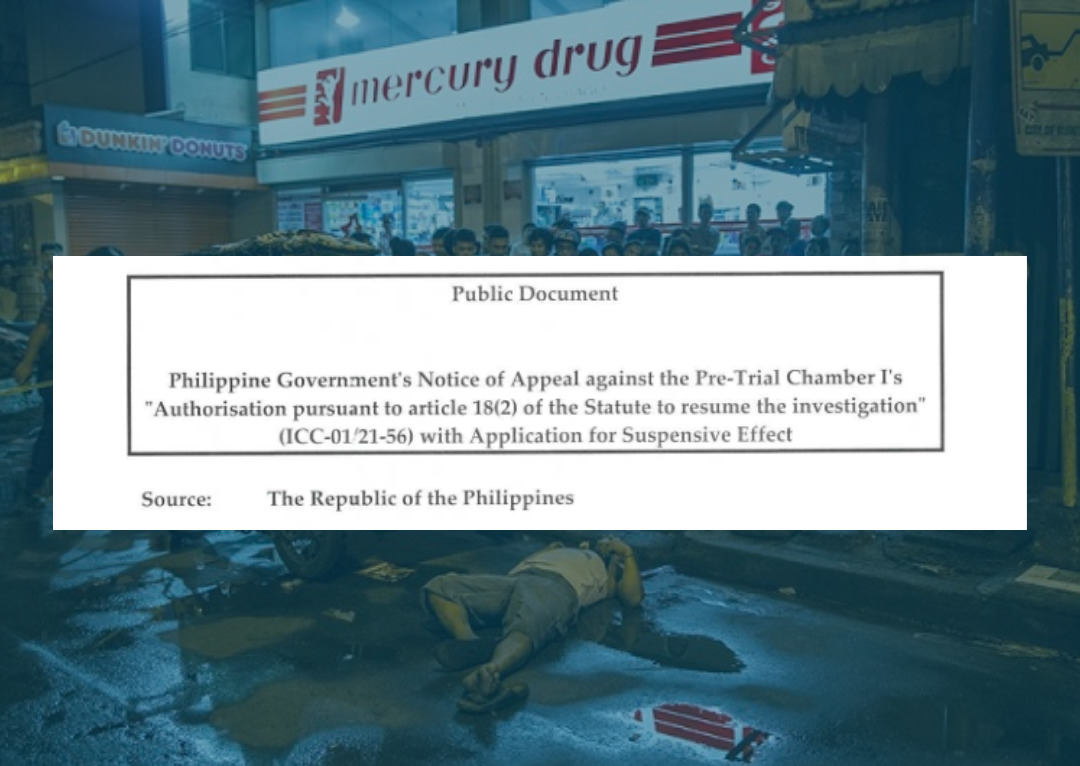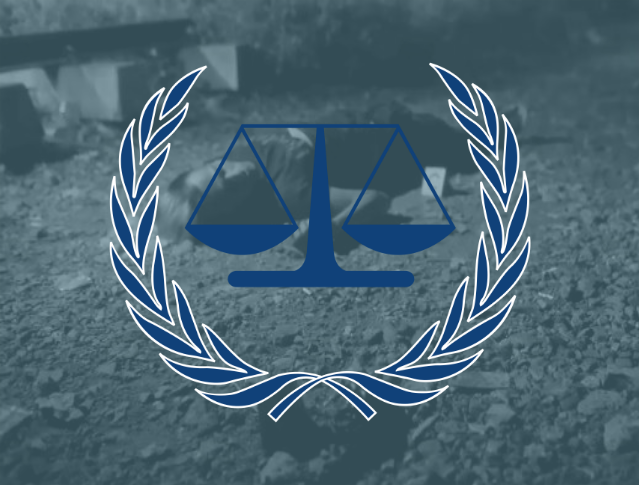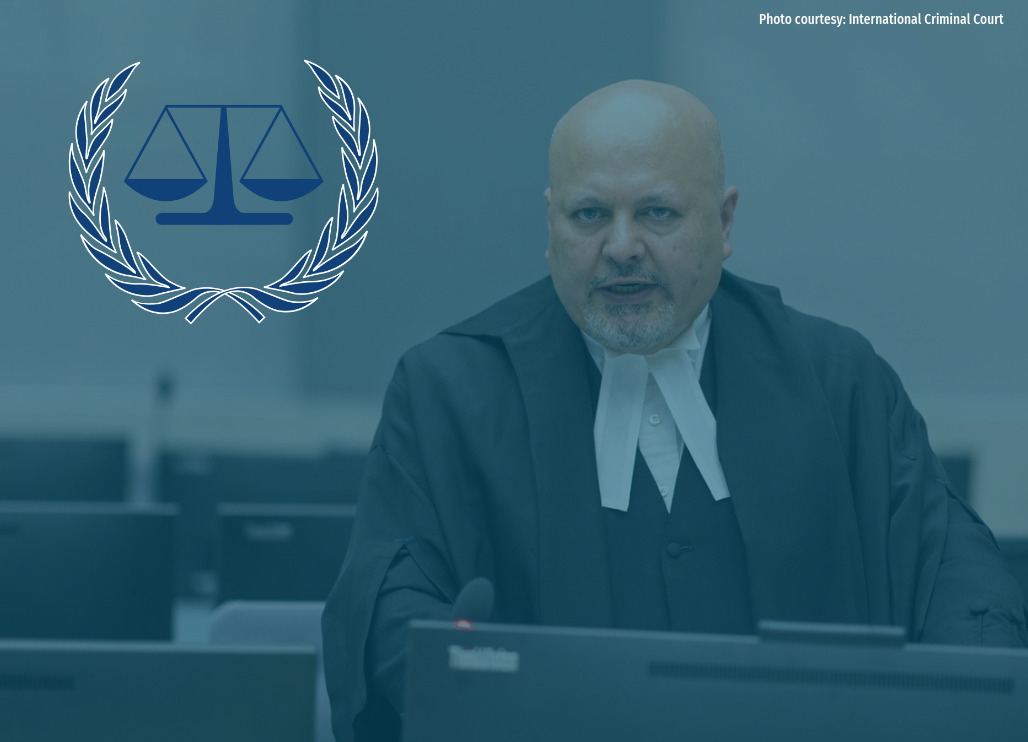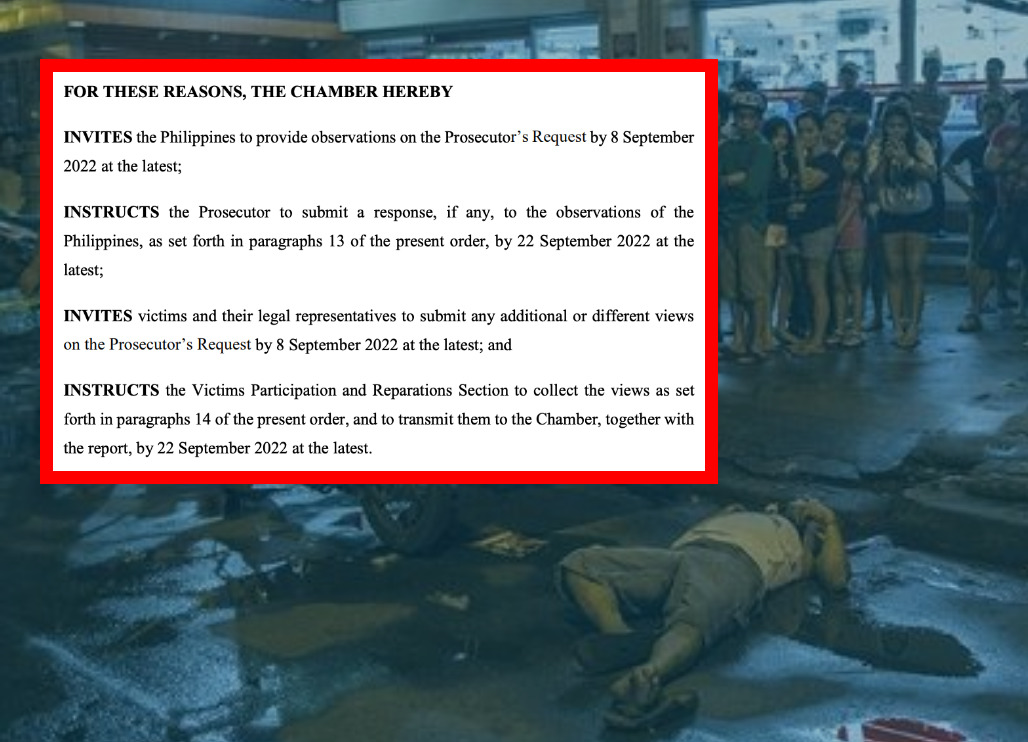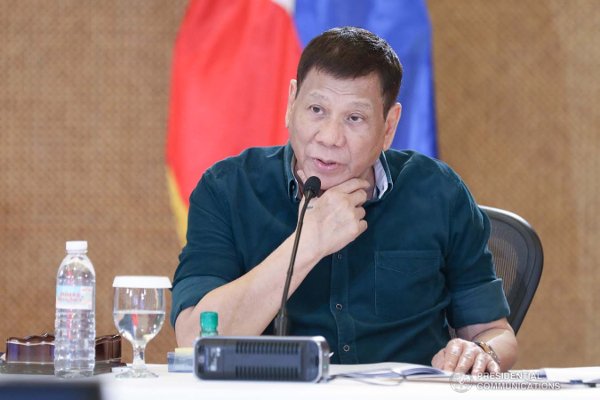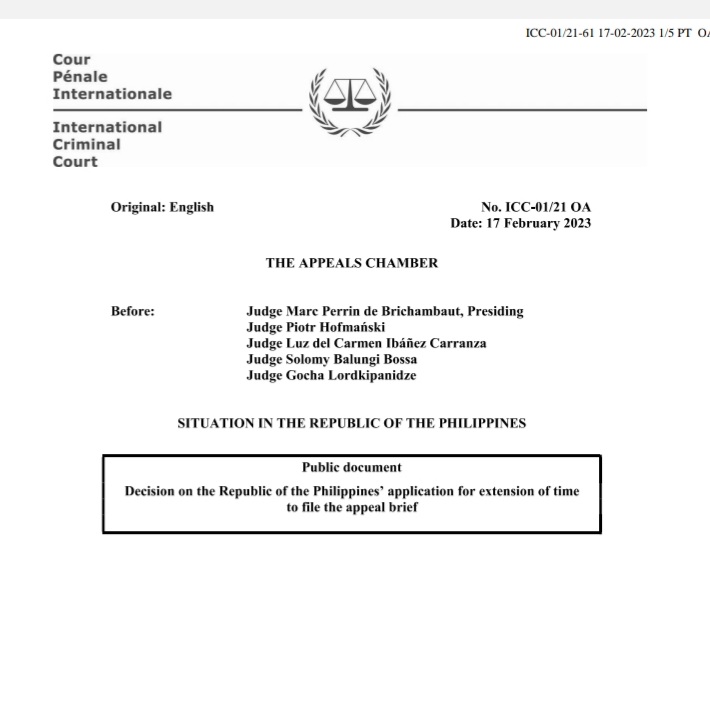The government has asked the International Criminal Court (ICC) to reverse the decision of the Pre-Trial Chamber allowing the prosecution to resume an investigation into alleged extrajudicial killings in the Philippines related to the illegal drug war of former president Rodrigo Duterte.
In a five-page appeal filed by the Office of Solicitor General (OSG) Menardo Guevarra on Feb. 3, the government also requested the ICC’s five-member Appeals Chamber to stop the implementation of the Jan. 26 ruling by the PTC on the continuation of the controversial ICC probe until the government’s motion is finally resolved.
“The relief being sought is a reversal of the decision and the denial of the OTP’s [Office of the Prosecutor’s] request to resume investigation regarding the Situation in the Republic of the Philippines,” the OSG wrote the Appeals Chamber, which hears appeals on decisions regarding jurisdiction or admissibility of cases before the ICC.
“The Philippine government thus hereby requests that the implementation of the PTC I [d]ecision be suspended pending final resolution of this [a]ppeal,” it added.
If the ICC grants the request for suspension, the investigation would be further delayed.
The ICC’s Pre-Trial Chamber I, a separate judicial branch of the court, allowed in September 2021 the launch of an investigation into alleged crimes against humanity, such as murder and sexual violence, in the Duterte administration’s drug war from July 1, 2016 to March 16, 2019. Some 12,000 to 30,000 victims are believed to have died in summary executions in that bloody drug war.
Coverage of the probe was later expanded into alleged extrajudicial killings and related crimes committed by vigilante groups in collusion with local law enforcers in the Davao region from November 2011 to June 2016 when Duterte was mayor of Davao City.
The investigation was suspended in November 2021, however, on the request of the Philippine government claiming that it was conducting its own probe into the cases.
Last Jan. 26 the Pre-Trial Chamber I decided to allow the court’s Prosecutor Karim Khan to proceed with the drug war probe citing several reasons, including the government’s failure to take “tangible, concrete and progressive investigative steps… with a view to conducting criminal proceedings, in a way that would sufficiently mirror the Court’s investigation.”
In its response, the OSG wrote, “The Philippine Government disagrees with, and hereby rejects, the Pre-Trial Chamber l’s conclusions.”
The government challenged the Pre-Trial Chamber’s decision pursuant to Article 18, paragraph 1 of the Rome Statute, the Netherlands-based founding treaty, on decisions pertaining to jurisdiction or admissibility.
Lawyer Romel Bagares, an international law expert, explained to VERA Files in a Feb. 6 interview that an appeal on admissibility and jurisdiction is a right granted to states by the ICC.
“‘Yun po[ng] admissibility, magkakabit, magkaakibat po kasi yun ng jurisdiction. ‘Yung question po kasi ng admissibility, whether or not admissible po ‘yung kaso sa ICC, given that according to the government of the Philippines the same matters are being investigated in the Philippines,” he said.
(Admissibility is related to jurisdiction. The question on admissibility is whether or not a case is admissible in the ICC given that, according to the government of the Philippines, the same matters are being investigated in the Philippines.)
Bagares noted that an appeal could be a way for the government to stop the drug war probe because the ICC system provides “leeway” for governments to assail the proceedings.
Aurora Parong, co-chairperson, of the Philippine Coalition for the ICC, said “The Philippine government’s appeal at the ICC doused cold water to the ray of hope for justice at the international court among the families of the tens of thousands killed in the War on Drugs. Where is the commitment to human rights which President Marcos Jr. repeatedly talks about in his diplomatic meetings? Where is ‘real justice in real time’ that is repeatedly announced by Justice Secretary Remulla?”
She added: “The promises of the Philippine government officials for human rights and respect for the rule of law are hollow! Our leaders for more than 7 months now are not providing the promised unifying leadership for human rights protection and justice in our country.”
